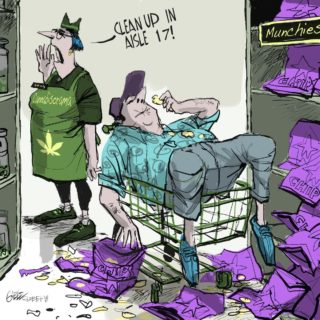RCMP Commissioner Bob Paulson told Canada’s First Nations leaders that his force includes racist officers and that he wants to kick them out.
Commissioner Paulson was responding to questions about systemic abuse of indigenous people after giving a speech to members of the Assembly of First Nations that promised reconciliation between the force and indigenous communities.
“I understand that there are racists in my police force, I don’t want them to be in my police force,” Commissioner Paulson said Wednesday afternoon during the AFN’s annual three-day meeting in Gatineau, Que.
“I would encourage you all, though, to have confidence in the [discipline] processes that exist, up to and including calling me if you’re having a problem with a racist in your jurisdiction or any other problems.”
Commissioner Paulson told the members that the review and complaints body that oversees his force was strengthened in the last Parliament and that RCMP brass can now be “very decisive with respect to handling matters of discipline.”
Grand Chief Doug Kelly, of B.C.’s Sto:lo Tribal Council, had told him: “We encounter racism every single day. Some of the worst racists carry a gun and they carry a badge authorized by you.”
“We need you to confront racism in the ranks,” said Mr. Kelly, as many in the crowd of about 300 AFN members applauded.
For years, Mounties have faced allegations that they have systematically mistreated those in some of the 600 First Nations communities they police across the country. The RCMP’s civilian watchdog recently wrapped up its investigation into allegations of excessive use of force, rape and mishandling of missing-persons reports when dealing with indigenous peoples in Northern British Columbia. B.C. The report will be made public once the RCMP issues their response. Quebec’s provincial police force is also confronting allegations of similar long-standing mistreatment of First Nations people, including accusations that could lead to criminal charges.
After Wednesday’s session, National Chief Perry Bellegarde said he invited the commissioner to speak and saw the act as a first step toward reconciliation for the force, as the start of an inquiry into Canada’s murdered and missing indigenous women looms next spring.
“This is the first time we’ve ever had the RCMP Commissioner at a chief’s assembly,” he said. “He took some really hard questions.
“He didn’t have to, but he did and that speaks to the man’s character.”
Commissioner Paulson’s speech started with the acknowledgment that the Mounties “continue to carry the shame of our role in residential schools, just as your subsequent generations struggled to free themselves from the harm done.”
Grand Chief Stewart Phillip, president of the Union of B.C. Indian Chiefs, said he pressed Commissioner Paulson to commit to playing a large role in the coming inquiry, unlike a time when “very defensive” police agencies “circled the wagons and engaged the high-priced legal counsel” several years ago during the B.C.’s Missing Women Commission of Inquiry into the serial murders of Robert Pickton.
“He seemed to say that the RCMP was prepared to fully engage in an open, honest and transparent fashion and would be very forthright in their engagement in the inquiry,” Mr. Phillip said.
A 2014 RCMP report found that 1,181 indigenous women were killed or went missing across the country between 1980 and 2012; a 2015 update to that report emphasized the “strong nexus to family violence.” But a recent Globe and Mail investigation highlighted that family violence is not the whole story. It found that indigenous women in Canada are roughly seven times more likely to die at the hands of a serial killer than non-indigenous women. Plus, a Statistics Canada report detailed that indigenous men are seven times more likely than non-indigenous men to be homicide victims.
“I don’t like the fact that aboriginal men were blamed for all the violence against our women,” Mr. Kelly said. “We knew that wasn’t the case, Commissioner Paulson, but somebody informed the government of the day that we were responsible.
“That was you or someone in your employ that did that.”
Dawn Lavell-Harvard, the head of the Native Women’s Association of Canada, said Mr. Paulson’s words were necessary to begin examining the force’s role in the country’s relationship with First Nations people.
“The women in our communities have known how bad it is because they have been the victim of this system,” she said. “But I can guarantee you the average Canadian citizen will be horrified of what comes out when we go through this [inquiry] process.
“We’re going to have to metaphorically rip the bandage off that and expose it to the light if we’re going to fix it.”
Vancouver activist Fay Blaney also welcomed Commissioner Paulson’s comments and said she hoped it would spur discussion about sometimes dysfunctional relationships between police and First Nations people.
“I think they need to ask the police about situations like what happened in Val-d’Or – I think it’s much more widespread than just Val-d’Or,” Ms. Blaney said, referring to recent allegations of police abuse of aboriginal women in the northern Quebec mining down.
MIKE HAGER
The Globe and Mail
Published Wednesday, Dec. 09, 2015 10:39PM EST
Last updated Thursday, Dec. 10, 2015 5:21AM EST

